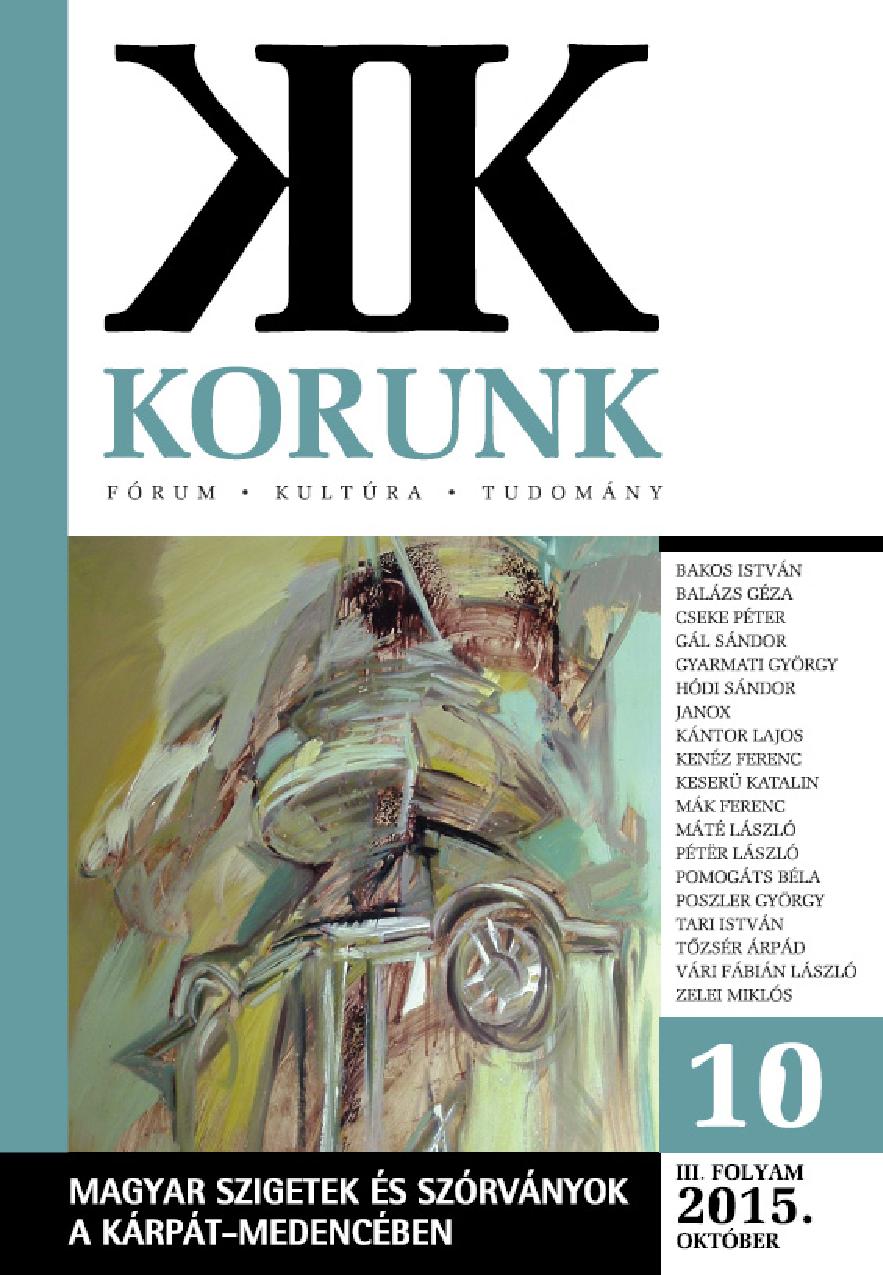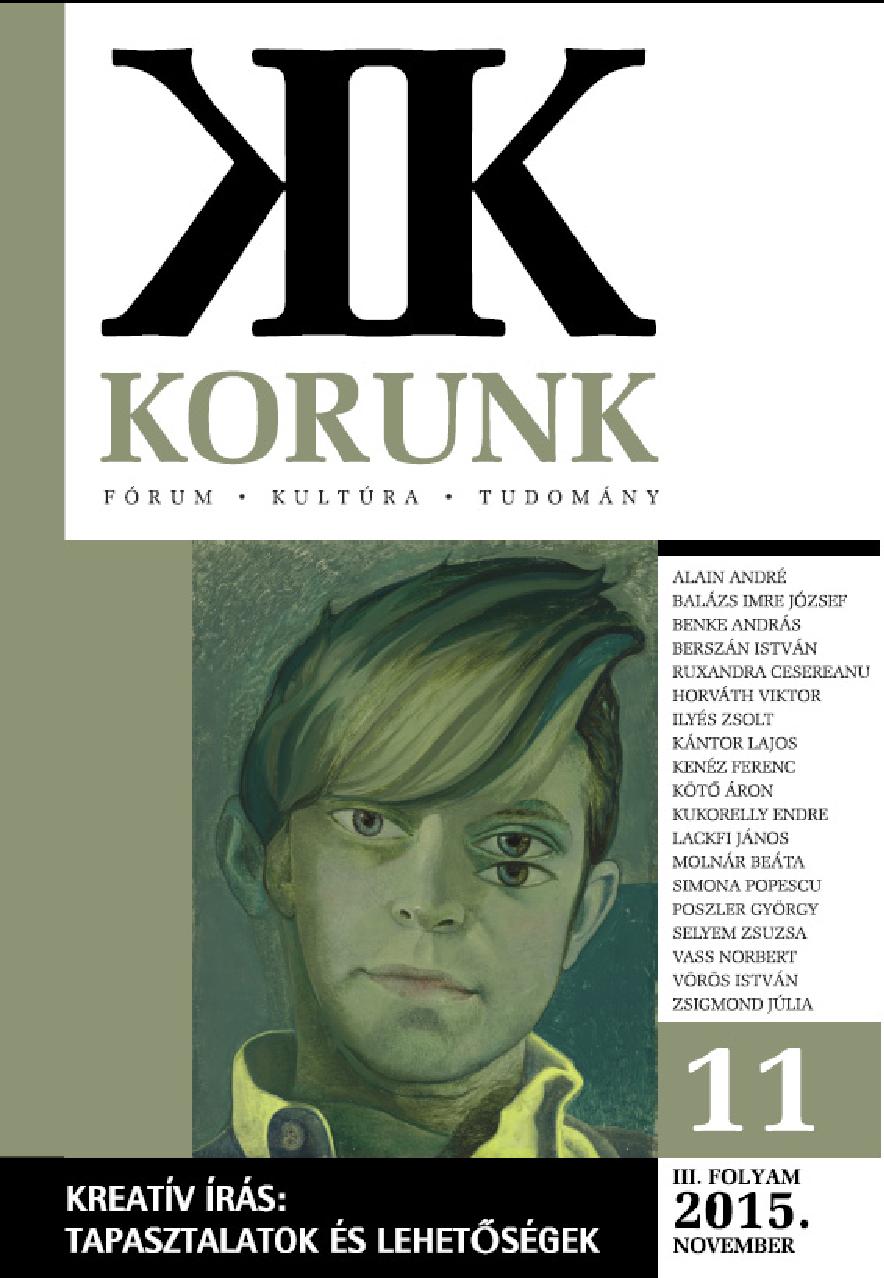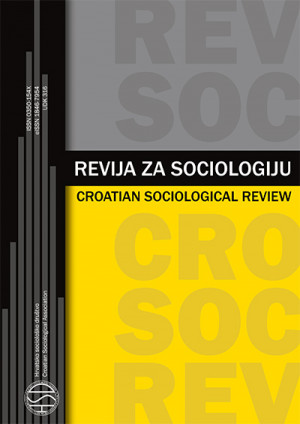






Keywords: Aleph-Écriture; connection with knowledge; creative writing; training; young teachers;
One of the key-points, in the initial training of young creative writing teachers in Aleph-Écriture, lies in their attitudes towards reading and literature. What do they read? How far do they feel legitimate in the literary field or do they feel terrified by the “monster” literature? Which tools do they use, as itcomes to reading complex texts? In other words: what is their connection with literary knowledge? The article gives a few examples of the author's work in this area and finishes with the discoveries about himself while writing about his own childhood readings
More...
Keywords: creative writing; cultural shift; literary training; Mihai Eminescu School of Literature and Literary Criticism; socialist realism;
One of the means of introducing new models of producing literature in Romania and other neighbouring countries was the idea and the practice of literary training. In the Romanianc ontext, the Mihai Eminescu School of Literature and Literary Criticism from Bucharestwas intended to produce the new, younggeneration of writers that would make the contribution of ‘fellow travelers’ of the time irrelevant, so that the generational shift was intended also as a cultural shift. The idea of‘writer with a diploma’ is introduced into Romania with this institute, the model of the School being the Gorky Institute from Moscow. The type of the courses, the teaching material shows exactly what types of transformations in the literary canon were intended – a larger institutional network (literary magazine, possibilities of cooperation with experienced writers) was also created around the School.In 1955, the school was incorporated into the University of Bucharest after only five years of existence. The paper discusses the possible causes of this partial failure of the idea of this type of ‘literary training’, based on documents from the Romanian Party Archives and on some autobiographical accounts of Romanian and Hungarian writers about the personal level of experiencing the cultural and political practice of the School.
More...






Keywords: Inglehart's modernisation theory; gender roles; nationalism; postmaterialism; religiousness; high school students;
According to Inglehart's modernisation theory, socio-economic growth leads to changes in values. Following a longer period of economic growth, a gradual change from materialistic to post-materialistic values is established. The main goal of this study, which is based on Inglehart's theory, was to assess the relationship between post-materialistic values on one side and religiousness, attitudes towards nationalism, and attitudes towards gender roles on the other among high school students in the city of Split. The research was conducted on a convenience sample of 427 high school students from Split (there were 269 female students and 158 male students) with the average age of 17 years. The results indicated that the students from the sample had mixed materialistic and post-materialistic values. Statistically significant differences were found between male and female students in all measured variables. For this reason, analyses were conducted separately by gender. Using multiple regression analysis, it was established that the model with post-materialistic values as the outcome was statistically significant regardless of gender. Discriminative analysis additionally showed that the measured attitudes discriminated groups of students with different levels of post-materialistic values (most prominently, attitudes towards gender roles and religiousness among female students, and attitudes towards nationalism and gender roles among male students). The main finding of the study was that of a difference between male and female students in terms of measured religiousness and two sets of attitudes, as well as gender differences in the relationship between the measured religiousness and the measured attitudes on one side and post-materialistic values on the other. Higher post-materialistic values were associated with lower religiousness among female students and lower acceptance of nationalism among male students.
More...
Keywords: theory of consumption; consumption; consumer society; Baudrillard; Bourdieu; Ritzer;
The paper presents elements of the theories of J. Baudrillard, P. Bourdieu, and G. Ritzer that are relevant for the context of the development of social thought on the phenomenon of consumption. Although the three authors held different perspectives on consumption, they shared the notion of an increasingly important role of consumption in the time and society in which they acted. In their work, consumption was analysed as a salient determinant of social life. The theories of those authors are presented here as dominant within the given periods of the development of social theory on consumption. Baudrillard recognised consumption as a new and important issue, and his criticism of the consumer society was far ahead of the time in which he wrote. In his view, consumer goods are signs and consumption is a type of language. In analogy with Marx's concept of means of production, Baudrillard proposed the concept of means of consumption as consumer sites that are a synthesis of abundance and calculation. Bourdieu constructed a class theory of consumption based on cultural practices. He considered consumer behaviour to be an expression of class position. Class is determined by its position in the system of differences or distinctions from other classes based on cultural practices, objects, and taste. In Ritzer's work, consumption becomes a powerful driving force of contemporary society, with the ultimate purpose of profit-making. He explained changes in contemporary society by the process of McDonaldization that has been increasingly spreading to various areas of social life. Transformations in the structures and interpersonal relationships in contemporary society were explained by Ritzer as a change from the old to the new means of consumption. The concluding part of the paper provides an overview of the three authors' theories in the context of consumer society, emphasising their contribution to the body of theoretical analyses of the phenomenon of consumption.
More...
Alex Law. Social Theory for Today: Making Sense of Social Worlds. Los Angeles: SAGE, 2015, 344 str.
More...
Vlasta Ilišin (ur.) Sociološki portret hrvatskih studenata Zagreb: Institut za društvena istraživanja u Zagrebu, 2014, 484 str.
More...
International Conference "Euclid Summit: Power to drive positive change. Building civil society and social enterprise knowhow for 2020 and beyond "
More...
International Conference "Religion and Non-Religion in Contemporary Societies. Theoretical, Empirical and Methodological Challenges for Research in Central and Eastern Europe and Beyond "
More...
Keywords: Milan Mesić (1948–2016);
In memoriam to Milan Mesić (1948–2016)
More...